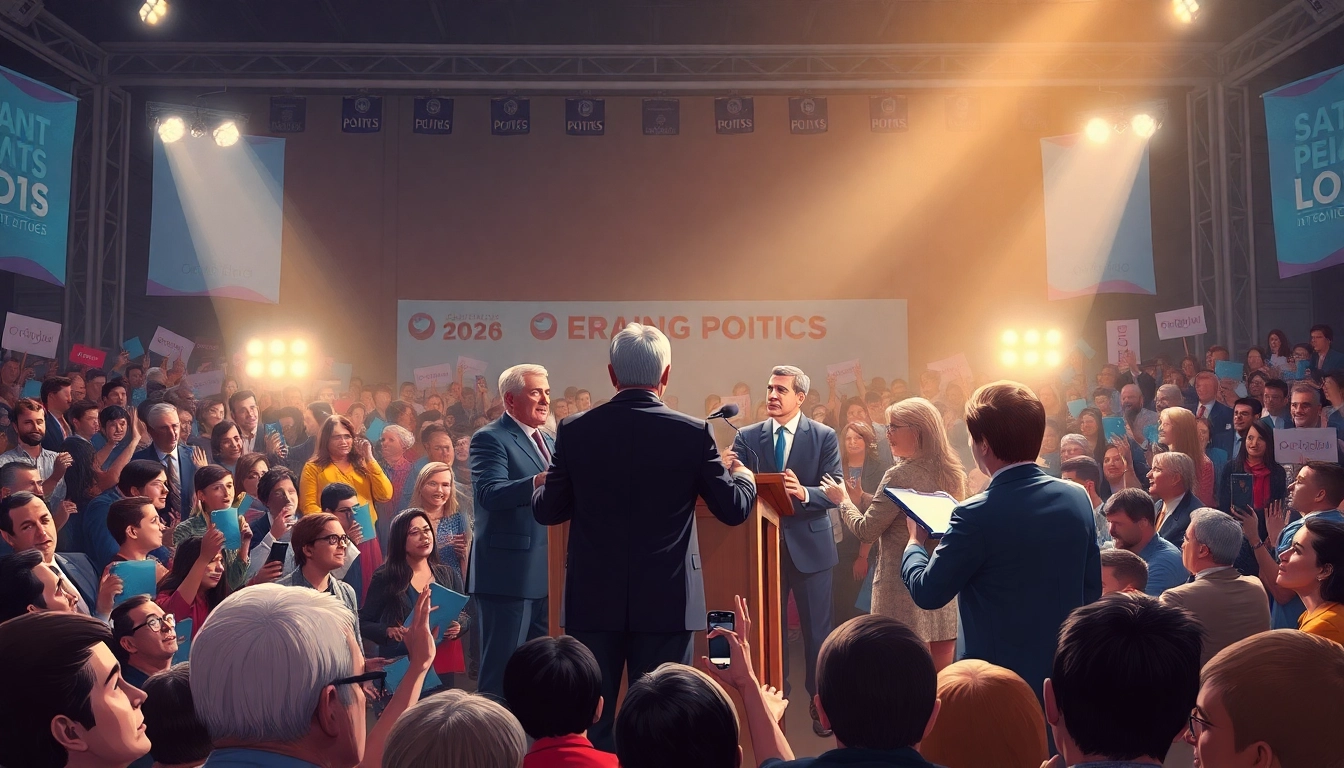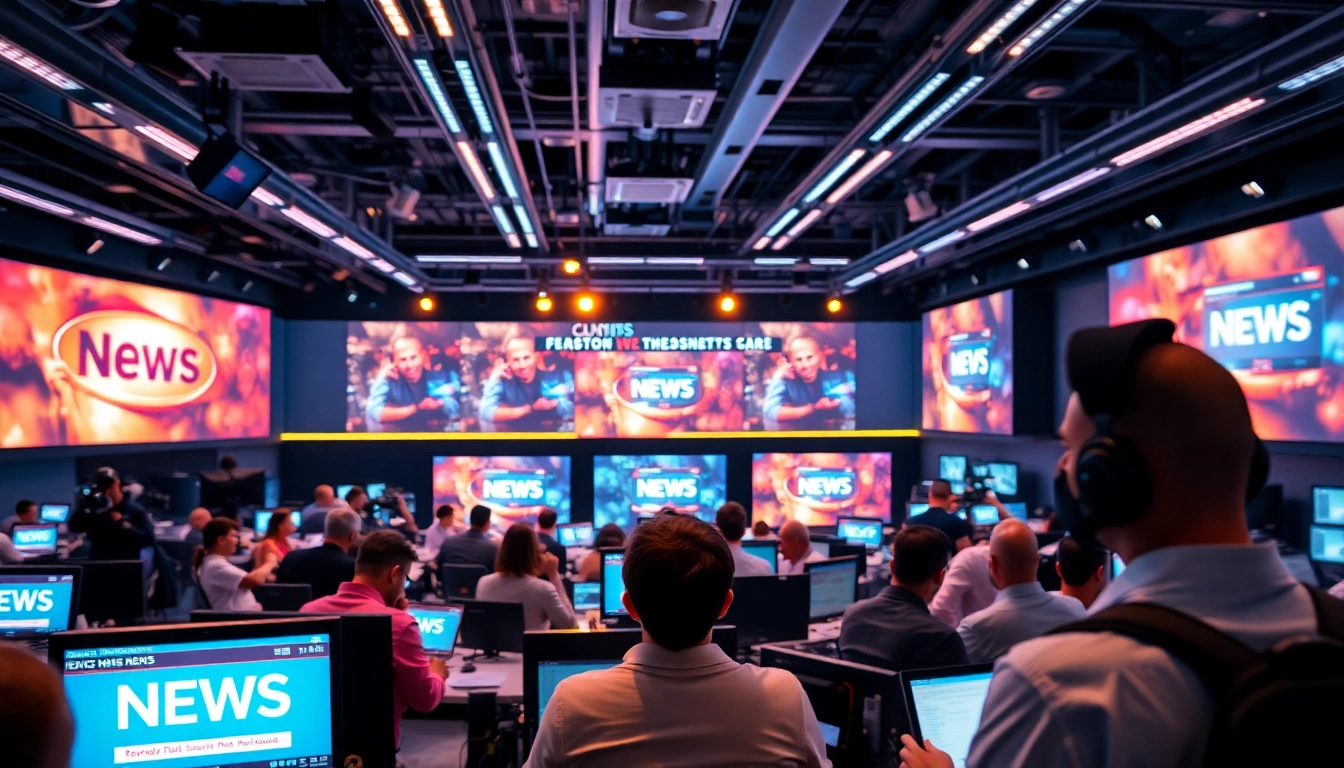Understanding the Landscape of Current Politics
Politics is an ever-evolving aspect of society, one that is deeply influenced by historical developments and cultural shifts. Today, the landscape of current politics is characterized by dynamic change and conflict across various arenas. Understanding this landscape requires a look at the historical context, the roles of major political parties, and the significant impact of media on political discourse.
Historical Context and Evolution
The foundation of any political system lies in its history. In the United States, political evolution has been driven by landmark events such as the Civil Rights Movement, the Vietnam War, and the Watergate scandal. Each of these instances reshaped the political narrative and public perception of government. Moreover, many contemporary issues can trace their roots back to these historical moments, impacting legislation and citizen engagement.
For instance, the Civil Rights Movement of the 1960s fought against systemic racism and inequalities, sparking ongoing discussions about social justice that remain crucial in today’s political climate. Understanding these historical contexts not only informs current political debates but also highlights the cyclical nature of political challenges and reforms.
Major Political Parties’ Roles
The primary political parties in the United States—the Democratic Party and the Republican Party—continue to play significant roles in shaping the policies and ideologies that define American politics. The Democratic Party is often associated with progressive values, advocating for social equity, environmental policies, and healthcare reforms. Conversely, the Republican Party typically champions conservative principles, focusing on individual freedoms, reduced government intervention, and economic deregulation.
Both parties are currently grappling with internal divisions, as they strive to address the complex needs of their constituents. Issues such as immigration reform, healthcare, and environmental responsibility have led to invigorated debates within each party, thereby influencing electoral strategies leading up to critical election cycles.
The Influence of Media on Current Politics
The media plays an integral role in shaping political narratives and informing the public. In an age of information overload, the advent of digital media and social platforms has transformed how politics is consumed and discussed. Traditional news outlets—like CNN and NBC—continue to be important, but the rise of online platforms means citizens often receive news from various sources with differing agendas.
This shift has led to challenges such as disinformation and polarization, impacting public trust in government and mainstream media. As individuals gravitate towards media that reinforces their beliefs, the potential for civil discourse diminishes. Navigating these media landscapes responsibly is essential for fostering informed citizenry.
Key Issues in Current Politics
As political dialogues continue to unfold, certain pressing issues dominate the current political landscape. Understanding these concerns is vital for citizens who aim to engage meaningfully in the political process.
Economic Policies and Their Impacts
Economic policies are at the forefront of political discussions, especially following the COVID-19 pandemic, which has reshaped the economic baseline. Key topics include inflation control, minimum wage debates, and taxation reforms. Policymakers are tasked with balancing economic recovery while addressing social equity.
The notion of a “living wage” is becoming a cornerstone of economic policy discussions, putting pressure on businesses and government entities to reassess current wage structures. Furthermore, stimulus packages aimed at revitalizing the economy must be weighed against potential long-term implications, leading to vital debates about fiscal responsibility versus immediate recovery needs.
Social Justice Movements
Social justice movements have garnered significant attention in recent years, with grassroots campaigns advocating for systemic changes across various sectors. Movements like Black Lives Matter and #MeToo have highlighted critical issues such as racial discrimination, gender inequality, and police reform.
The influence of these movements signifies a cultural shift toward accountability and societal reform. As people mobilize both online and offline to advocate for change, it becomes imperative for politicians to address these issues substantively. The challenge lies in translating grassroots demands into tangible legislation that resonates with constituents across the spectrum.
Global Relations and Foreign Policy
In an increasingly interconnected world, foreign policy remains a vital aspect of current politics, influencing national security and international collaboration. Issues such as trade agreements, immigration laws, and climate agreements cannot be examined in isolation from global events.
For instance, recent tensions with countries like China and Russia have sparked a re-evaluation of trade policies and military strategies. Simultaneously, climate change policies require international cooperation, pushing politicians to craft innovative solutions that reflect both national interests and global obligations.
The Role of the Electorate in Current Politics
The electorate holds the power to shape political outcomes, with increasing engagement reflecting a more involved citizenry. Various factors contribute to electoral participation, including voter sentiment, grassroots movements, and advancements in polling technology.
Voter Turnout Trends
Voter turnout is often seen as a barometer of civic engagement in a democracy. Recent elections have witnessed fluctuating participation rates, often influenced by crucial issues such as voter ID laws and accessibility challenges. For instance, the 2020 election saw record-level turnout, propelled by heightened public interest in issues such as racial justice and pandemic response.
Encouraging voter participation is critical for a healthy democracy, prompting initiatives to educate citizens about their voting rights and the importance of their votes.
Polls and Public Opinion Insights
Polling serves as a vital tool for gauging public sentiment, providing insight into voter priorities and political affiliations. However, interpreting polling data can be complex, as biases in sampling and methodology can skew results. A deeper analysis is necessary for understanding public opinion trends and their implications for policy-making.
By examining polling data, political analysts can identify shifts in voter sentiment, potentially changing the course of campaign strategies and party platforms.
Grassroots Movements and Activism
Grassroots movements have emerged as powerful agents of change, enabling ordinary citizens to channel their voices into actionable political agendas. Activist groups advocating for climate change, healthcare access, and social equity have gained traction, particularly through social media.
Politicians are now acknowledging the importance of grassroots support, often aligning their platforms with these movements to mobilize younger voters. Successfully leveraging grassroots activism can influence legislative changes and electoral outcomes, highlighting the vital role of citizen engagement in shaping policies.
Challenges Facing Current Politics
As political landscapes evolve, several challenges persist, complicating the governance landscape. Addressing these challenges is critical for restoring public trust and fostering effective governance.
Partisanship and Political Gridlock
Partisanship remains a dominant feature of contemporary politics, often leading to legislative gridlock. As different political factions are frequently unable to reach consensus, vital legislation often stalls, impacting citizens adversely. The divide between Democrats and Republicans has deepened, marked by divergent views on climate policies, tax reforms, and healthcare access.
Finding common ground amid this polarization requires innovative collaboration strategies, urging lawmakers to prioritize collective interests over party lines.
Disinformation and Its Effects
The fight against disinformation has become a critical challenge in the current political climate. The proliferation of misleading information through social media channels complicates efforts to maintain an informed electorate. Disinformation can hinder meaningful political discussion, foster distrust in institutions, and manipulate public opinion.
Addressing this challenge requires collaborative efforts across governments, tech companies, and civil society to promote media literacy, enhance fact-checking initiatives, and foster transparency in information dissemination.
Climate Change Policies
Climate change stands as one of the most pressing issues of our time, necessitating immediate and impactful policy responses. Discussions around renewable energy sources, emissions reduction, and sustainability form a critical part of current political discourse. However, the debate remains contentious, often split along party lines regarding the best approach to environmental protection.
Developing comprehensive climate policies demands bipartisan cooperation, emphasizing environmental stewardship alongside economic viability. Advancements in technology should be leveraged to meet these challenges, ensuring a sustainable future for generations to come.
The Future of Current Politics
The future of politics is at a crossroads, shaped by emergent trends and societal demands. As political dynamics continue to evolve, looking ahead provides insights into potential outcomes and changes on the horizon.
Upcoming Elections and Their Significance
Upcoming elections serve as pivotal moments for political engagement, with significant implications for both national and local governance. With key midterm elections approaching, parties will be compelled to address crucial issues to garner voter support. Election strategies will increasingly focus on rallying bids around pressing challenges such as healthcare, education, and social justice.
Understanding voter sentiments and turnout projections can offer valuable insights into what drive electoral participation, enhancing candidates’ efforts to connect with constituents on meaningful levels.
Emerging Political Leaders
The emergence of new political leaders represents a potential shift in traditional political frameworks. These candidates often bring fresh perspectives and innovative solutions to the table, often engaging younger voters. Historically, the rise of charismatic figures has frequently yielded substantial political shifts, and the current landscape hints at further transformative potential.
Identifying emerging leaders and monitoring their impact on community engagement will provide critical insights into the evolution of political ideologies moving forward.
Technological Innovations Shaping Governance
Technological advancements are revolutionizing governance, offering opportunities to enhance transparency, accountability, and civic engagement. Innovations such as blockchain for voting security, AI in public service delivery, and mobile platforms for political advocacy stand to reshape the governance landscape.
Embracing these technologies not only revitalizes public administration but also offers citizens more channels through which to engage in the political process, fostering a more inclusive and participatory democracy.



